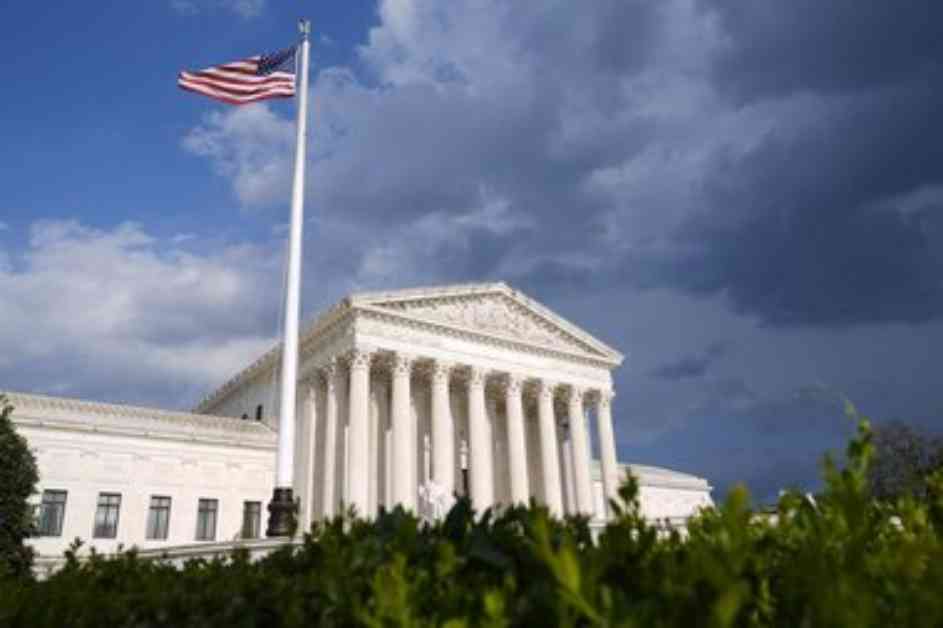The Supreme Court took action on Friday in a pivotal decision that impacts the federal agency safeguarding government whistleblowers. In a notable move regarding President Donald Trump’s second-term agenda, the justices intervened in a legal battle, temporarily allowing Hampton Dellinger, head of the Office of Special Counsel, to retain his position until at least Wednesday. This decision follows a lower-court order that provided temporary protection for Dellinger until its expiration date.
With a slim majority of five justices, the Supreme Court neither granted nor denied the administration’s request to immediately dismiss Dellinger. Instead, they opted to keep the request on hold until the expiration of the lower court’s order. U.S. District Judge Amy Berman Jackson is set to hold a hearing on Wednesday to determine whether the order safeguarding Dellinger’s position will be extended, potentially prompting the Supreme Court to revisit the case based on her ruling.
Conservative justices Neil Gorsuch and Samuel Alito aligned with the administration, raising doubts about the authority of the courts to reinstate an official fired by the president. Gorsuch highlighted that individuals contesting their removal have historically pursued remedies such as backpay rather than reinstatement. On the other hand, liberal justices Sonia Sotomayor and Ketanji Brown Jackson would have opposed the administration’s plea.
The Justice Department made a forceful plea to the court, emphasizing the importance of allowing the termination of the head of a relatively obscure federal agency. Acting Solicitor General Sarah Harris argued that blocking Dellinger’s removal crossed a constitutional boundary, hindering President Trump’s ability to shape the agency’s agenda during the early days of the new administration.
The Office of Special Counsel plays a vital role in protecting federal employees from unlawful personnel actions, including retaliation for whistleblowing. Its leader can only be removed by the president for specific reasons such as inefficiency, neglect of duty, or malfeasance in office. Dellinger, appointed by President Joe Biden and confirmed by the Senate, expressed gratitude for being able to continue his work as an independent government watchdog and advocate for whistleblowers.
The Justice Department urged the court to use this case as an opportunity to establish boundaries and curtail federal judges’ intervention in presidential actions. Harris emphasized that numerous judges had recently halted several presidential actions, encroaching on Trump’s authority. The court’s past decisions have indicated a willingness to limit the president’s removal power over agency heads, notably in the Consumer Financial Protection Bureau case.
Chief Justice John Roberts, while upholding the president’s authority to remove agency heads, distinguished the Office of Special Counsel’s limited jurisdiction from other regulatory bodies. The new administration’s intent to challenge the Humphrey’s Executor ruling, which restricts arbitrary firings of agency members, could have far-reaching implications for various government bodies.
President Trump’s efforts to dismiss members of multi-member boards overseeing federal agencies have faced legal opposition, mirroring Dellinger’s situation. The laws governing these agencies protect members from arbitrary removals, leading to clashes between the administration and the judicial system.
As the legal landscape evolves, the Supreme Court’s role in shaping the balance of power between the executive branch and independent agencies remains critical. The outcome of the current case involving Dellinger could set a precedent for future disputes over presidential authority and the protection of agency heads from arbitrary removals. Stay tuned for updates on this developing story.

